A glut of celebrity cases has demolished the myth that child abusers are all dirty old men in raincoats. But now the scale of the problem has been laid bare the justice system is struggling to adapt.
THE LOW DOWN
The scandal that emerged following Jimmy Savile’s death in 2011 transformed the environment for child abuse claims. With widespread abuse emerging not only in the celebrity arena, but also in the world of football and through exploitative gangs in industrial towns, the scale of the problem has been laid bare. We now have an environment in which victims feel more able to come forward than they have in the past. An independent statutory inquiry, the Independent Inquiry into Child Sexual Abuse (IICSA), seeks to ensure that lessons are learned and changes made; and lawyers are hopeful that it will have a positive impact despite the bad press it has received. Meanwhile, the law itself is in a state of confusion as two major judgments last year seem to be at odds.
The death of Jimmy Savile in 2011 was a watershed moment for the exposure of child abuse. As hundreds of his victims came forward, daylight shone on a dark world in which the rich and the powerful preyed on the young with casual ease. The scandal surrounding Savile swept up other well-known figures in its wake, such as Rolf Harris and Max Clifford. But the ripples stretched well beyond celebrity perpetrators, and the scale of abuse in many other areas of life – football, religion, schools – has finally been laid bare.
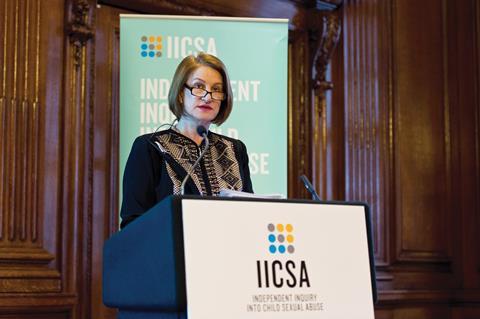
In 2011/12, police recorded 21,493 sexual offences against children under 16 in the UK. But by 2016/17 – the latest figures – this had more than doubled to 43,522; part of a steep upward trend that has persisted every year since 2012/13. Last year there were an astonishing 6,009 reported cases of rape of a child under 13, and 10,581 reported sexual assaults in the same age group. There were 12,281 reported offences of sexual activity with a child under 16, and 1,132 grooming offences.
The alarming rise in reported offences may partly be due to the way the internet now gives perpetrators greater access to children; and there is also better recording of these offences by the police. But with many reported offences being historic cases, there is another factor at work: survivors of abuse are now very much more likely to come forward and reveal what has happened to them.
Peter Garsden, head of the abuse department at Simpson Millar, says: ‘The big effect of the celebrity syndrome is to make people realise that child abuse does not only happen in children’s homes, or to the poor and needy. It transcends every level of society. It can happen wherever an adult can be alone with a child; in any class and any location. Sex offenders are not dirty old men in raincoats. They are charming individuals who are likeable, clever and manipulative.’
Garsden adds that while the high-profile celebrity cases have led to more openness around child abuse, there can also be a negative effect. ‘Often in these celebrity cases, the abuse of power continues,’ he says. ‘In non-celebrity cases people find it hard to believe that someone that they loved and trusted is alleged to have been an abuser. In celebrity cases, you get the same reaction from not only those who know the celebrity, but also their fans. Those who read about it develop polarised views in one direction or the other. You get newspapers accusing victims of abuse of being fantasists. It is the abuse of power replicating itself.’
Kim Harrison, abuse lawyer at Slater and Gordon, outlines the scale of abuse that has been uncovered in recent years. She says: ‘Since Jimmy Savile we have seen a heightening of awareness over the prevalence and possible scale of abuse. It caused large numbers of child abuse survivors to come forward and report abuse to the authorities.
‘Then in November 2016, with the disclosures by [former professional footballer] Andy Woodward, and other survivors of abuse by football coaches such as Barry Bennell, there has been a huge increase in awareness of the dangers of children being abused in a sporting context.’
She adds: ‘Child sexual exploitation, or CSE, is another area of abuse that has received huge media attention following the child grooming and CSE criminal trials, and reports into institutional failings of the police and social services in places like Rotherham, Rochdale and more recently Telford.’
The explosion in social media has contributed to the number of victims coming forward, Harrison suggests, as victims and survivors can now connect with one another in a way that they could not before. ‘Research suggests that victims do not come forward until they feel they will be believed, and so knowing you are not alone can be very empowering for CSA survivors,’ she says.
One survivor of the Rotherham sex abuse gang, Sammy Woodhouse, waived her anonymity last year to campaign for abuse victims who committed crimes under the direction of their abuser to be pardoned. The campaign has been dubbed ‘Sammy’s Law’ and has been backed by senior figures including several police chiefs and England’s children’s commissioner Anne Longfield.
A DUTY TO REPORT
Many victims’ lawyers and pressure groups such as Mandate Now are calling for IICSA to recommend legislation that imposes a legal obligation on those working with children to report suspicions of child sexual abuse to the authorities. No such legal requirement exists in the UK at the moment, although such laws are in place in parts of Australia, Canada and the US.
Kim Harrison, abuse lawyer at Slater and Gordon, says: ‘There is a big groundswell of support for mandatory reporting. At the moment, for example, a Catholic priest in the confessional box could confess over and over again to raping a child, and the person hearing the confession has no legal obligation to report this to the police. The mandatory duty to report suspicions works very well in other countries and in some places it has been in place for decades.’
She adds: ‘If you look at solicitors, they are already subject to things like anti-money laundering requirements. There are certain situations where they have to make a report to a money laundering officer; and failing to report is a criminal offence. Society is fine with that. But there is a big disconnect between how we treat different crimes or suspicion of crimes.
‘It cannot be acceptable that at the moment a person who is in a position of power over a child can know [the child is] being abused and not do anything about it.’
Gang victims also hit the headlines last year when the Criminal Injuries Compensation Authority attracted widespread disgust over its rules on the issue of ‘consent’ to a crime. Harrison explains: ‘The child grooming cases such as in Rochdale have not fitted into the traditional parameters of requiring there to be “a crime of violence”, which is central to qualify for compensation under the CICA scheme.
‘Many victims and survivors of CSE grooming cases have seen their abusers successfully prosecuted and jailed, only to make claims under the CICA scheme and to be told that they consented to their abuse, and so were not entitled to an award. There has been outrage among many children’s charities, and the CICA did change its guidance in October to try and explain the complex issues around grooming and consent in this area. [But] it remains to be seen if this will mean that more CSE victims are awarded compensation under the scheme.’
The CICA is also in the line of fire over its denial of compensation to abuse victims who lived in the same household as the perpetrator before a certain date – known as the ‘1979 same roof rule’.
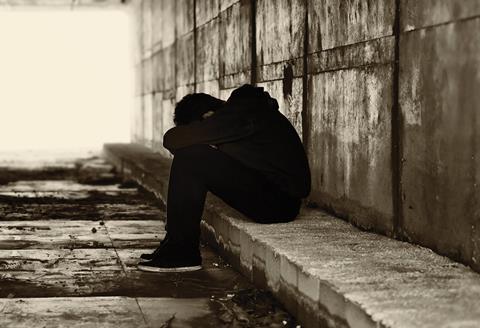
Last month the Court of Appeal heard a case brought by JT, who had been repeatedly raped and abused by her stepfather, who was convicted and imprisoned in 2015. The abuse had taken place before 1979 and the stepfather had also abused JT’s cousin, to a lesser extent but outside the home. JT’s cousin received a CICA compensation award, but JT’s claim was rejected due to the 1979 rule and she received nothing. She is challenging the rule on the basis that it is discriminatory.
The rule affects several hundred people and is also under challenge through two other cases, one in Scotland and one in Northern Ireland.
‘The government should do the right thing and abolish this arbitrary and archaic rule,’ Harrison asserts.
The abolition of the 1979 rule is supported by the Independent Inquiry into Child Sexual Abuse (IICSA), led by Professor Alexis Jay, which is tasked with ensuring that children get the care and protection they need from abuse.
The inquiry was set up in 2014 in the wake of Savile, to examine institutional abuse. It had a difficult birth, losing two chairs in its first six months, as Baroness Butler-Sloss and her short-lived replacement Fiona Woolf both withdrew due to objections over their perceived closeness to the people and institutions being investigated.
A new chair, New Zealand judge Dame Lowell Goddard, was appointed in 2015 and the inquiry was reborn as an independent statutory inquiry – with stronger powers – in July 2015. In August 2016, however, Goddard also resigned, and was replaced by Jay, who has been chair since August 2016.
‘The inquiry had a shaky start,’ remarks Jonathan Wheeler, abuse lawyer and managing partner at Bolt Burdon Kemp. ‘But actually, you can’t overestimate its impact. When it published its interim report [on 25 April this year], I was really pleased with some of the recommendations in there.’
Wheeler points to two of IICSA’s recommendations in the civil justice sphere that will make a positive difference for victims. The first is that when giving evidence to the court, they should be afforded the same support as vulnerable witnesses in the family and criminal courts; such as the opportunity to give evidence via videolink, or using an intermediary to assist in the way questions are asked.
‘At the moment, you still have cases where the abuser can cross-examine the victim,’ Wheeler says. He adds that while individual courts may be alive to these issues when they are raised at case management conferences, what is needed is a prescribed set of rules that all courts will need to follow.
Second, IICSA has asked the Association of British Insurers to examine whether a register of public liability insurers could be set up. Wheeler says: ‘If abuse has happened at, for example, a private school that no longer exists, and you can’t find the insurer, then you end up having to drop the claim. Lawyers have been calling for compulsory liability insurance for institutions and a central register for a long time.’
The inquiry has launched 13 investigations into a broad range of institutions, including children’s homes, the Catholic and Anglican churches, and Westminster. Some of these have already been completed and last year it published a highly damning report into two children’s homes associated with deceased Rochdale MP Cyril Smith.
Harrison says: ‘The IICSA has been more positive than the media can sometimes give it credit for. But what is important is that it makes concrete recommendations for the future protection of children. For example, many victims’ lawyers are calling for the inquiry to recommend a law on mandatory reporting (see box). Also, in relation to churches, the campaign is for independent oversight of the safeguarding in churches. Time after time, there has been cover-up and scandal, where they close ranks and protect their own. The aim is to try to get something out of the inquiry that is a lasting change.’
Wheeler is optimistic that the inquiry will actually achieve its aims. He says: ‘I’m quite hopeful that this is not just a sop and it will result in policy changes. After all, the inquiry is costing a fortune – and I’d hope that the government set it up in order to learn and put policies in place.’
On the case law side, the past 12 months have seen various highs and lows for child abuse lawyers.
The high point came in October 2017, when the Supreme Court ruled in Armes v Nottinghamshire CC [2017] UKSC 60 that the local authority was vicariously liable for the actions of foster carers, who were effectively ‘employees’. A significant extension of the principle of vicarious liability, the ruling was greeted with cheers from claimant representatives, as it will now make actions for abuse committed by foster carers very much easier to bring.
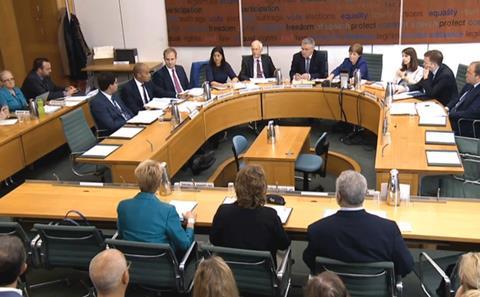
‘Foster carers and the local authorities that employ them are now in the line of sight of claimant lawyers,’ Wheeler remarks.
But then, two months later, came December’s Court of Appeal ruling in CN, GN v Poole Borough Council [2017] EWCA Civ 2185. In that case, which involved a local authority’s failure to rehouse a family whose vulnerable children were traumatised by unruly neighbours, the court held that the local authority did not owe a duty to the children because it had not ‘assumed responsibility’ for them.
So while a local authority’s liability has widened in relation to children living with foster carers, it has narrowed in relation to those living in a private home with their birth parents.
Barrister Iain O’Donnell, who acted for the claimants in CN, warns that the Court of Appeal’s ruling leaves too much ambiguity surrounding ‘assumption of responsibility’, and when this will give rise to liability.
He says: ‘You could have a child in a private home with their parents, where Schedule 1 sex offenders are permitted to enter and neighbours have raised concerns to the local authority, but it has not sent out any social workers. Because the local authority has done nothing, it is less likely to be considered to have assumed responsibility… It could incentivise social services departments to do nothing on referrals. It’s potentially terrifying.’
Garsden adds: ‘CN was a judgment in a case that was not about child abuse directly [as it was housing-related], but which has been interpreted to have such far-reaching consequences. I think the original intention of the judges has been overtaken by events. I don’t think they appreciated the effect of it.’
Claimant lawyers are daring to hope that the CN horror will soon be behind them, however. The Supreme Court has granted permission to appeal and given an expedited hearing date, which falls later this month. Lady Hale – who has ruled in similar cases in the past – will be presiding.
‘We’re in limbo at the moment, with a lot of cases stayed, waiting for the appeal,’ Wheeler says. ‘But I was surprised that the Supreme Court gave such an early date. I think that bodes well.’

Rachel Rothwell is a freelance journalist and editor

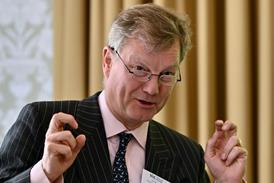
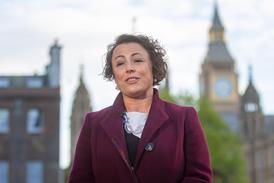

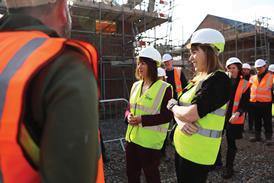


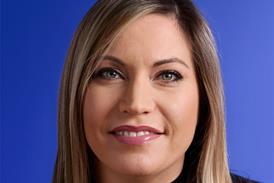
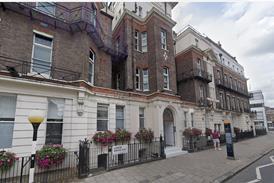








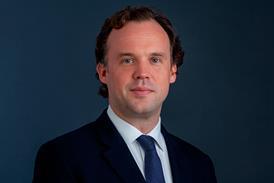
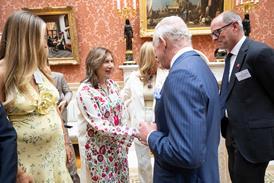
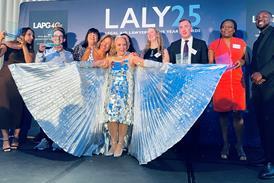







No comments yet